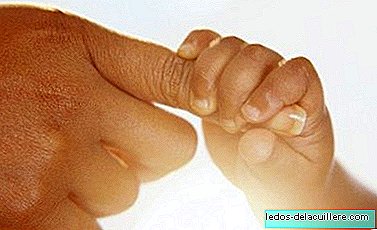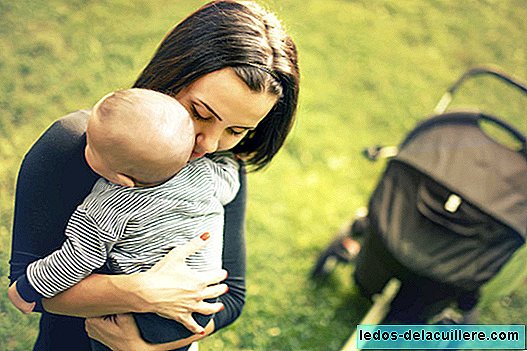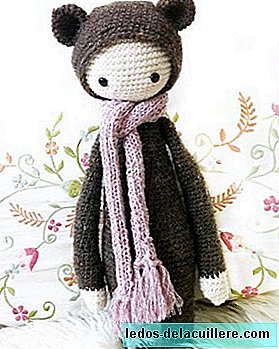
Unfortunately, bullying is the order of the day. We see it in the news continuously and it seems that violence lurks in every corner. As parents we feel fear because we try to constantly keep our children from these types of situations but it is not always possible. Although they seem isolated, the truth is that two out of ten students suffer bullying in the world, according to the report of Unesco: Ending the Torment: Tackling bullying from the schoolyard to cyberspace.
We want to focus on the importance of parents to teach that problems can be resolved without violence and that we are responsible for teaching them how to do it. You may not have stopped to think but, it is quite common to hear parents say to their children, before situations of violence, something like "defend yourself!" "Hit him too!", When the correct premise should be teach him to defend himself without using violence. Here are some keys that you can put into practice.
Show you the value of tolerance from home
The first thing to understand is that children who commit acts of abuse, violence and bullying are also children. The main reason for violence in this context is because differences they perceive. Therefore, we must teach our children to accept themselves, to appreciate their identity, their race, their family and their own self. We should not make fun of others, nor express ourselves with violence when someone violates our rights. If you are in line in the supermarket and someone gets ahead, act and claim your right without being aggressive. Remember: your son is watching you.
A child who feels loved and accepted in the family circle may have a better chance of success in their social interactions.
Listen to him, you are his best support
If your son comes home and tells you that he suffers some kind of harassment or just a "mom, today they've pushed me" don't ignore it. Something that for you may be "children's things", for your little, so vulnerable is a situation that needs attention from you. You must listen to what has happened, ask how it has been managed and, above all, know if it has been something specific or a behavior that repeats itself continuously.
You should do this whether your child receives those "pushes" or if he gives them, remember that we want to eliminate violence in every way and there will be our role as models offering strategies to resolve those conflicts without using any type of violence
Teach him to express his feelings without aggressiveness
From a very young age, children tend to act instinctively and generally defend themselves aggressively using their body, either biting, pushing, shouting, hitting, etc., attitudes that if not corrected in time can become a problem, becoming violent behavior in the future. That is why it is our duty to teach them to identify their feelings in a situation that is not pleasant. It is important that you learn to handle and express it. Having accumulated anger naturally leads us to aggressive behaviors and in some cases leads to sadness or anguish.
It is also frequent that sometimes your little one feels frustration when he fails to do something and gets angry and beaten, there you must act and teach him that this behavior will never help him to solve what he was trying to do, either assemble a toy or close a drawer . However, if you breathe and do it calmly, you will understand that the results do lead you to your goal.

Revenge is not sweet
It is likely that your son thinks that returning that punch would be the best, that perhaps he will feel better but you must make him understand that this feeling will only last a few seconds and yet he will use the same resource as his aggressor, violence. That will make him fall into the same error and also generate a loop situation where the aggressor will also seek revenge. This is worth it?
That is why it is important that we teach our children to use their voice, and that they understand that sometimes the best way to defend is dialogue. If your child can defend their personal limits and rights verbally, you will have won the first step. For that reason they must learn to say that no. Also, they should add words like "I don't like this" to their vocabulary, "don't do this," "I ask you to stop." It may cause them a little fear, but it is our duty to teach them that they must assert their rights without reaching violence.
Run away from dangerous situations
The child must understand that there are people and situations from which it is better to flee. If something is bothering you it is better to ignore it. It is not synonymous with cowardice, but shows intelligence.
Value self-control
The strongest child is the one who knows how to dialogue, not the one who hits the strongest. Our children should know since childhood that the true strength of character is in respect to others and not get carried away by impulses.
Asking for help is not being a snitch
On the other hand, they should know that if stopping doesn't work they have to ask for help. We cannot silence the violenceWell, that's a way to spoil her. Before getting into conflict and getting hurt, it is better to turn to an adult and ask for help.
Violence never leads to anything good for this reason it is important that our children learn at a young age to defend themselves against such situations, and promote tolerance and respect as parents, avoiding as much as possible bullying and school violence .
Since 1993 the United Nations Educational, Scientific and Cultural Organization (UNESCO) recognized the school day of nonviolence and peace, also known as DENIP, a non-governmental educational day founded in Spain in 1964 by the poet and pacifist Llorenç Vidal. Today is the day to promote nonviolent education. No to the culture of imposition. No to fear
As parents it is our duty to educate, encouraging non-violent teaching so that they learn how they should be treated and how they should treat other people within society. In this way, when our children reach school age they are less likely to be involved in situations of violence. And if it happens, they will learn to defend themselves in the best possible way, let's start from this moment to be parents in favor of defense without violence. Remember, your child must defend himself, but without assaulting.
In Babies and more | # LosLltimos100: Save The Children requires an organic law against child violence in our country, How to detect if your child suffers bullying, do they laugh at your child in school? This is what you can do.












